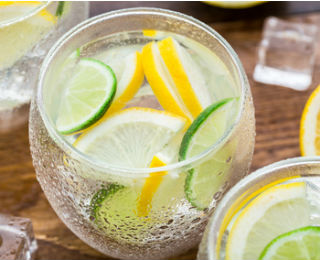Published: January 31, 2015
 Just how important is water? Well, according to the USGS Water Science School, over 50 percent of our bodies are made up of water, so it’s safe to say that it's a very important thing for maintaining life. It serves a variety of essential purposes in our body, including:
Just how important is water? Well, according to the USGS Water Science School, over 50 percent of our bodies are made up of water, so it’s safe to say that it's a very important thing for maintaining life. It serves a variety of essential purposes in our body, including:
-
It is necessary for the life of every cell, allowing them to grow, reproduce and (most importantly) survive.
-
It helps the kidneys eliminate waste and toxins from the body via urination.
-
It helps facilitate many crucial body functions, such as circulation, nutrient absorption/transportation, digestion, the regulation of body temperature and the production of saliva.
-
It lubricates joints and acts as a shock absorber for the brain and spinal cord
Dehydration is Dangerous
Even though water is an essential part of our life, many adults 50 years old and above do not drink enough of it. This puts them at a risk for dehydration. According to the Environmental Protection Agency (EPA), older adults who are especially at risk for dehydration include:
-
Those with a decreased thirst sensation who do not feel the urge to drink often.
-
Those who find it difficult to drink due to physical conditions.
-
Those who are on medications that increase the risk of dehydration.
Most experts recommend an “8 by 8 rule,” which means that adults should drink at least eight glasses of water (at 8 ounces each) every day. This can be accomplished quite simply by constantly sipping on water through the day. The Centers for Disease Control and Prevention (CDC) also give these tips for ensuring that you are drinking enough water:
-
Keep a water bottle handy. Having a bottle of water with you at all times can serve as a subtle reminder to drink more water. Also, you can refill the bottle any time you’re near a sink or water fountain.
-
Drink even when you’re not thirsty. The feeling of thirst is your body’s way of telling you that it is heading toward dehydration. To avoid this, it is important to constantly refuel yourself by drinking water even when you don’t feel like you need to.
-
Use natural flavoring. A little excitement for your taste buds is an excellent way to ensure that you are drinking enough water. Adding juices from lemons, strawberries and cucumbers will add a kick of flavor and encourage you to drink more.
Drinking more water will not only help you age in a more healthy manner, but it will also improve your mood and make you feel better.





